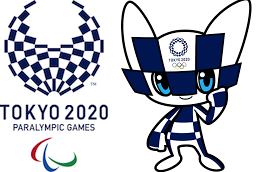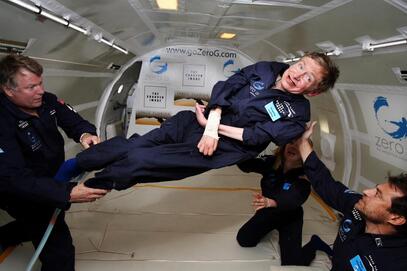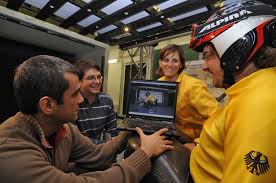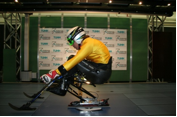Nelson A. Campos VinagreCommercial pilot / Professor of Sports Science Sporting activities for athletes with disability have existed for more than a 100 years. Relevant contributions to this area of knowledge occurred in the 18th and 19th centuries that demonstrated the importance of sports participation in the rehabilitation and re-education process of people with special needs. Cutting-edge research has targeted methods that can reduce the consequences of living with reduced mobility and, at the same time, provide new ideas and possibilities for engaging in sporting activities as a means of treatment and rehabilitation. This has led in recent decades to greater opportunities for people with disabilities to participate in sports, and the prospect of further moves for inclusion in the coming years should continue to help improve their quality of life. The mobility provided by assistive technologies is known to contribute positively to the medical and psychological needs and treatment of casualties of armed conflict and has provided them with opportunities to overcome the life-changing injuries they have endured, both the physical and mental challenges. The Invictus Games, championed by Prince Harry, Duke of Sussex, which first took place in London UK in 2014, is an excellent example of how the power of sporting inclusion can inspire wounded and sick service personnel in their rehabilitation, providing an arena to not only motivate them in their personal journeys to recovery but also to generate a wider understanding and respect from the general public for those who serve their country.  Equally, the showcase events of the Summer and Winter Paralympics, through being linked and following on from the traditional Olympic games for non-handicapped athletes, fosters greater equality for the disabled, putting them on the same global platform and helping change the way disability is perceived. More than 4,400 athletes with disability are expected to compete in the Summer Paralympics to be held in Tokyo in August 2020. The rising number of people with disabilities, covering all age groups, is made more evident through witnessing the larger numbers of these individuals taking part in physical and sporting activities. Their participation in sports as a means of improving health, quality of life and social interaction is an area of interest that I have followed over the many years of my career and it gave direction to my PhD research. My doctoral thesis intended to improve understanding of the process of evaluating people with physical incapacities in the same way as people considered non-handicapped. It involved submitting the German athletes from the Paralympic Alpine Skiing Team to a standard physiological test on a treadmill and to an evaluation process performed in a wind tunnel, a device normally used to test aerodynamic profiles. It was a fascinating project as the relationship between the needs of those people being studied and the evaluation instrument used was not obvious, but we aimed to better observe broader and more accurate responses related to the physical and aerodynamics performance of the skiers involved, which it is hoped can benefit not only the ski team members, but also non-athletes who may or may not practice this sport. The biomechanical aspects related to posture, motor learning and motor development of people with disability were also considered, as they may perform sports as a way of preventing major health risk implications or may desire to practice sports as a rehabilitative process to improve motor skills. The motivation behind my thesis was also based on the possibility of conducting research that allowed the use and unification of different areas of expertise. The physiological investigation of disabled athletes, combining with testing them with aerodynamic loads in a wind tunnel could bring advances related to quality of life and the specific training and health of people with disabilities. A further important motivating factor was the idea of promoting the social inclusion of people with special needs through the organisation and interpretation of the scientific information obtained in this research, and applying the findings to scenarios of daily life and not just for elite athletes.  Physicist Stephen Hawking in microgravity on a parabolic flight in 2007 Physicist Stephen Hawking in microgravity on a parabolic flight in 2007 The efforts towards inclusion of individuals with special needs are helped with the advances in assistive technologies, such as exoskeletons to help people stand and walk, and numerous smartphone apps to help the visually impaired and deaf. Many countries have legislated to ensure that discrimination due to disability is avoided in the employment market. Therefore, with talk of ‘hotels’ in space and craft similar to the proposed Lunar Orbital Platform (Gateway) in the near future, should people with disability be considered for space travel and work where they are not pinned down by gravity? In fact, the answer is another question – why not? Stephen Hawking experienced microgravity during a parabolic flight, and seemed to safely enjoy floating in the air. However, studies are needed to respond to questions like these, but if they are never asked, they will never be answered. Comments are closed.
|
Welcometo the InnovaSpace Knowledge Station Categories
All
|
InnovaSpace Ltd - Registered in England & Wales - No. 11323249
UK Office: 88 Tideslea Path, London, SE280LZ
Privacy Policy I Terms & Conditions
© 2024 InnovaSpace, All Rights Reserved
UK Office: 88 Tideslea Path, London, SE280LZ
Privacy Policy I Terms & Conditions
© 2024 InnovaSpace, All Rights Reserved






 RSS Feed
RSS Feed